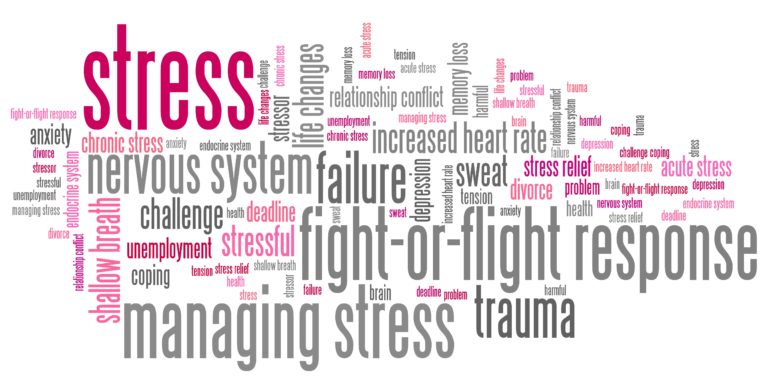Religious trauma is a complex psychological condition that develops when religious teachings, practices, or communities become sources of fear, shame, and emotional distress rather than comfort and spiritual growth.
While religion provides many people with meaning, community, and moral guidance, for others, certain religious experiences can be deeply damaging. This trauma can stem from authoritarian religious environments, exposure to fear-based teachings, spiritual abuse, or the process of leaving a high-control religious group.
At Arbor Wellness, we recognize that addressing religious trauma requires sensitivity, understanding, and specialized therapeutic approaches.
Learn more about our Nashville mental health treatment programs or call us now at 629-217-2658.
What is Religious Trauma?
Religious trauma is the psychological and emotional distress that results from negative experiences within religious contexts.
Religious trauma happens when religious beliefs, practices, or communities that were meant to provide spiritual nourishment instead become sources of significant harm. This form of trauma can develop gradually through prolonged exposure to damaging religious teachings or suddenly through specific traumatic events within religious settings.
According to a 2021 study published in the Journal of Trauma & Dissociation, approximately 28% of individuals who left high-control religious groups reported symptoms consistent with PTSD, highlighting the significant psychological impact these experiences can have.
Religious trauma differs from other forms of trauma in its existential and spiritual dimensions. It often involves questioning fundamental beliefs about one’s purpose, worth, morality, and place in the universe.
For many survivors, religious trauma creates profound confusion about their identity and reality, especially when their religious framework previously provided answers to life’s most important questions.
What Causes Religious Trauma?
Religious trauma can stem from various sources:
- Authoritarian or High-Control Religious Environments: Religious groups that exert excessive control over members’ behaviors, thoughts, and relationships can create conditions for trauma. These environments often use fear, shame, and isolation as tools for compliance.
- Fear-Based Teachings: Doctrines that emphasize divine punishment, eternal damnation, or apocalyptic scenarios can instill persistent terror, especially in children and vulnerable individuals.
- Spiritual Abuse: This occurs when religious authority figures misuse their power to manipulate, control, or harm others. Examples include using scripture to justify abuse, demanding unquestioning obedience, or exploiting followers financially or sexually.
- Religious Rejection: Experiencing condemnation, exclusion, or rejection from a religious community due to one’s identity (such as LGBTQ+ status), questions, or perceived sins can be deeply traumatic.
- Exposure to Religious Violence: Witnessing or experiencing violence justified by religious beliefs can cause severe trauma.
- Problematic Religious Coping: When religious teachings interfere with healthy coping mechanisms or promote harmful responses to life challenges (such as discouraging medical treatment in favor of prayer alone).
- Leaving a Religious Community: The process of questioning, doubting, and eventually leaving a religious tradition can itself be traumatic, especially when it involves losing community, family relationships, and an entire worldview.
Is Religious Trauma A Form of PTSD?
While religious trauma shares some characteristics with Post-Traumatic Stress Disorder (PTSD), it isn’t always classified as such in clinical settings. However, severe religious trauma can indeed manifest as PTSD or Complex PTSD (C-PTSD) when the criteria for these diagnoses are met.
Religious trauma often presents with symptoms similar to PTSD, including:
- Intrusive thoughts about religious experiences
- Nightmares related to religious themes
- Emotional distress when exposed to religious triggers
- Avoidance of religious settings, symbols, or discussions
- Hypervigilance and heightened anxiety
The term “Religious Trauma Syndrome” (RTS) has been proposed by some mental health professionals to describe the specific cluster of symptoms related to harmful religious experiences, though it’s not officially recognized in diagnostic manuals like the DSM-5.
How Common Is Religious Trauma?
Religious trauma is difficult to measure, as it remains under-recognized and under-researched in clinical settings. Many individuals who experience religious trauma may not identify their symptoms as trauma-related or may hesitate to seek help due to fear, shame, or continued religious influence.
However, several factors suggest that religious trauma affects a significant population:
- Research indicates that approximately 30% of people who leave high-control religious groups experience significant psychological distress.
- Mental health support groups and online communities for religious trauma survivors continue to grow, with thousands of members globally.
- Mental health professionals report increasing numbers of clients seeking help for religion-related psychological distress.
- Studies of former members of fundamentalist religious groups show elevated rates of anxiety, depression, and PTSD symptoms.
The experience appears to cross denominational and religious boundaries, affecting people from various faith traditions including Christianity, Islam, Judaism, Hinduism, and others.
It’s important to note that religious trauma is not inherent to any particular religion but rather related to how religious teachings are implemented and the dynamics within specific religious communities.
Signs and Symptoms that You May Be Suffering From Religious Trauma
Religious trauma can manifest in various ways, including:
Psychological Symptoms:
- Persistent anxiety, particularly around religious themes or moral issues
- Depression and feelings of worthlessness
- Intense guilt and shame that seem impossible to resolve
- Identity confusion and difficulty making autonomous decisions
- Black-and-white thinking patterns
- Fear of divine punishment or the apocalypse
- Intrusive thoughts about sin, hell, or religious rules
Emotional Symptoms:
- Emotional reactions (panic, fear, rage) when exposed to religious triggers
- Difficulty trusting oneself or others
- Anger toward religious institutions or authority figures
- Grief over lost community, identity, or worldview
- Emotional numbing or disconnection from feelings
Social Symptoms:
- Difficulty establishing boundaries in relationships
- Social anxiety and fear of judgment
- Isolation due to fear of rejection or inability to relate to others
- Challenges with intimacy and sexuality
- Difficulty navigating environments without clear rules
Physical Symptoms:
- Somatic responses to religious triggers (racing heart, stomach distress)
- Sleep disturbances, including nightmares with religious content
- Physical tension and hypervigilance
- Psychosomatic symptoms that may have been previously attributed to spiritual causes
Spiritual/Existential Symptoms:
- Existential crisis and questioning of fundamental beliefs
- Spiritual confusion or emptiness
- Fear of exploring new spiritual or philosophical ideas
- Difficulty finding meaning and purpose without religious framework
Long-Term Effects of Religious Trauma
Without appropriate intervention, religious trauma can have lasting impacts on an individual’s life:
- Chronic Mental Health Conditions: Persistent anxiety disorders, depression, and in some cases, PTSD or C-PTSD.
- Relationship Difficulties: Problems with trust, intimacy, and establishing healthy boundaries in relationships. This may include difficulty recognizing manipulation or abuse due to normalized unhealthy dynamics in religious settings.
- Identity and Self-Worth Issues: Ongoing struggles with self-esteem, self-trust, and developing an authentic identity, particularly when one’s sense of self was previously defined primarily through religious affiliation.
- Decision-Making Challenges: Difficulty making autonomous decisions without fear of punishment or seeking external validation.
- Sexual Dysfunction: Problems with sexuality resulting from religious shame, fear, or trauma, including sexual guilt, difficulty with intimacy, and in some cases, sexual aversion.
- Cognitive Impairments: Ongoing difficulties with critical thinking, independent judgment, and breaking free from black-and-white thinking patterns.
- Continued Religious Fear: Persistent fear of divine punishment, hell, or the apocalypse, even years after leaving the belief system intellectually.
- Intergenerational Effects: Without healing, religious trauma patterns may be passed to the next generation through parenting styles and communication patterns.
Types of Religious Trauma
Religious trauma can take several forms:
Doctrinal Trauma
This results from exposure to harmful religious teachings and beliefs, such as:
- Concepts of eternal punishment and hell
- Original sin doctrines that instill inherent unworthiness
- End-times teachings that create persistent fear
- Teachings that demonize natural human experiences (like sexuality)
- Doctrines that promote self-loathing or excessive self-sacrifice
Community Trauma
This stems from harmful experiences within religious communities:
- Shunning or ostracism for questioning or non-compliance
- Public humiliation or confession rituals
- Loss of community and relationships when leaving
- Gossip and social control mechanisms
- Isolation from the broader society
Authority Trauma
This involves harm caused by religious leaders or authority figures:
- Spiritual abuse (using religion to control or manipulate)
- Sexual abuse by religious authority figures
- Financial exploitation in religious contexts
- Punishment or humiliation by religious authorities
- Betrayal by trusted religious leaders
Identity Trauma
This emerges when religion conflicts with core aspects of identity:
- LGBTQ+ individuals experiencing rejection or conversion therapy
- Women subjected to extreme gender roles or limitations
- Racial/ethnic minorities experiencing discrimination within religious settings
- Individuals with disabilities being told their condition is due to sin or lack of faith
Ritual/Practice Trauma
This occurs when religious practices themselves become sources of harm:
- Exorcisms or deliverance rituals
- Excessive fasting or physical deprivation
- Sleep deprivation as a spiritual practice
- Speaking in tongues or other ecstatic practices when coerced
- Prolonged prayer sessions used as punishment
Religious Trauma in Childhood
Children are particularly vulnerable to religious trauma in childhood for several reasons:
- Developmental Vulnerability: Children lack the cognitive development to critically evaluate religious claims or distinguish metaphorical from literal teachings. Concepts like eternal punishment can be particularly terrifying to children who cannot fully comprehend them.
- Dependency on Caregivers: Children depend on their parents and religious authority figures for safety and guidance, making it impossible for them to escape harmful religious environments.
- Identity Formation: Religious trauma during childhood can profoundly impact identity development, as children are still forming their sense of self, morality, and worldview.
- Neurological Impact: Childhood religious trauma can affect brain development, particularly in areas related to fear response, emotional regulation, and critical thinking.
Common manifestations of childhood religious trauma include:
- Excessive fear of God, hell, or the devil
- Preoccupation with sin and moral perfection
- Premature development of scrupulosity (obsessive concern with moral or religious issues)
- Nightmares with religious themes
- Fear of normal developmental experiences (like puberty)
- Difficulty distinguishing between religious teachings and reality
- Delayed development of autonomy and independent thinking
- Challenges with healthy emotional expression
Adults who experienced religious trauma in childhood often require specific therapeutic approaches that address both the childhood trauma and its ongoing effects in adulthood.
How Is Religious Trauma Treated?
Healing from religious trauma typically involves a multi-faceted approach:
Trauma-Informed Therapy
Specialized therapeutic approaches that can help include:
- Trauma-Focused Cognitive Behavioral Therapy (TF-CBT)
- Internal Family Systems (IFS) therapy
- Somatic experiencing
- Narrative therapy to reconstruct one’s personal story
Education and Understanding
Learning about religious trauma, thought reform, and psychological manipulation can help survivors:
- Understand their experiences within a psychological framework
- Recognize they are not alone in their experiences
- Reduce self-blame and shame
- Begin to separate harmful religious elements from potentially beneficial spiritual concepts
Community Support
Connecting with others who have similar experiences can be profoundly healing:
- Support groups (in-person or online) for religious trauma survivors
- Communities of former members of similar religious backgrounds
- Secular communities that provide acceptance and belonging
Rebuilding Identity and Belief Systems
A crucial part of recovery involves:
- Exploring personal values independent of religious doctrine
- Developing critical thinking skills and epistemological understanding
- Creating new meaning and purpose beyond religious frameworks
- Selective integration of helpful spiritual concepts (if desired)
- Developing healthy boundaries and relationship patterns
Addressing Specific Symptoms
Treatment often needs to target particular manifestations:
- Anxiety management techniques for religious fears
- Cognitive restructuring for black-and-white thinking
- Grief work for losses associated with religious trauma
- Body-centered approaches for somatic symptoms
- Relationship and sexuality therapy when needed
At Arbor Wellness, our therapists are trained to recognize and treat religious trauma with the sensitivity and expertise it requires. We understand the complex nature of religious trauma and provide a non-judgmental space for exploration and healing.
Find Help For Mental Health Today
If you recognize signs of religious trauma in your own experience, know that healing is possible. Religious trauma, while profound, can respond well to appropriate PTSD treatment and support. Many survivors not only recover from their trauma but develop greater psychological resilience, authentic spirituality (if desired), and deeper connections with themselves and others.
At Arbor Wellness, we offer specialized therapy for religious trauma, providing a safe space to process your experiences and rebuild your sense of self and spirituality on your own terms. Our trauma-informed therapists understand the unique challenges of religious trauma and will meet you wherever you are in your healing journey.
Don’t let religious trauma continue to impact your life.
Call us at 629-217-2658 or verify your insurance to learn more about how we can support your healing journey.










